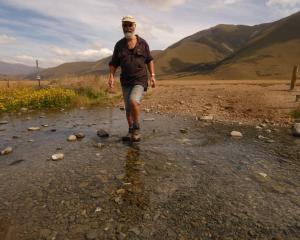
It is 128 years since the Scott, Inder and Hore families first saw the potential of land in the mountain range north of Naseby to relieve the pressure on their home farms on the Maniototo Plain after dry, difficult years.
Since then, those three families have worked together, later joined by several others, moving sheep into the mountains in the summer, and then mustering them for the return home.
The Mt Ida Syndicate was between the Soldiers Syndicate, which continues to function, on the southern boundary, and Aviemore Station to the north.
The muster has been an eagerly awaited ritual, involving successive generations, often joined by neighbours and casual musterers, in what has become a rapidly disappearing way of life. Much camaraderie was generated in the hut at night.
Originally, grazing was allowed under a pastoral occupation licence, which, unlike a pastoral lease, had a fixed term, with no right of renewal.
In 2008 the Commissioner of Crown Lands designated the Mt Ida Syndicate land for vesting in the Department of Conservation for conservation purposes.
The farmers then sought a judicial review of the commissioner’s process.
In 2011, the farmers and Doc reached an out-of-court settlement, with grazing allowed for a 12-week period every year for the next 10 years, while the more than 8000ha block — now known as the Mt Ida Conservation Area — remained conservation land to be managed by Doc.
Farmers later accepted a three-year wind-down period with grazing to cease by 2026.
Jock Scott’s great-grandfather Robert Scott, a member of Parliament for the Tuapeka electorate and later Central Otago, was among those farmers who first saw the land’s potential.
Jock had a huge affinity for the syndicate, first venturing there as an 11-year-old in 1958, riding his uncle Bill Scott’s horse Robin and, after leaving school, becoming one of the musterers.
He was muster boss from 1996 until 2023.
While the end of grazing on the land had been well signalled, Jock remained saddened that it had to end.
He believed grazing could be run in harmony with public access to the area.
"I cannot see why this country, along with monitoring and careful management, cannot be still grazed by sheep along with public access and enjoyment.
"Joint use of public land is practised in other parts of New Zealand."
Given his family’s lengthy association with the land, and what it had meant for alleviating pressure on their own Kyeburn farm, he acknowledged he was gutted about the end of the era.















